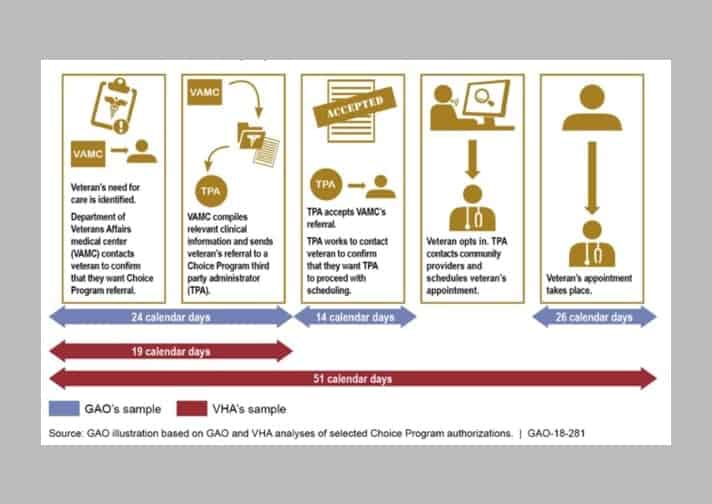Mailroom: GI Bill Blues, College May Hurt Your Disability Rating

When it comes to disability ratings, can the fact of attending college be used against you?
That is a good question one veterans writes in about for this week’s mailroom.
I have heard this before and have had the VA use the same logic against me. At the core of this issue are veterans who receive Total Disability Individual Unemployability ratings or PTSD ratings.
Veterans have written to me on a few occasions with this problem. The VA claims that, because they attend college, they can also be employable or do not have PTSD. There is a problem with this logic, and I’ll explain it in a bit.
Here’s the drill: Each week, I take an email from a veteran that would have broad appeal to many veterans. I then analyze it for a week and post my input here in our weekly segment: Mailroom. Basically, I take out all the identifying information from the best emails and post them here with my answer.
If you have a burning question about your veterans benefits, sent me a note selecting the contact tab at the top of this page. If I think your situation will be helpful for other veterans, I will repost it here.
* If you do not want me to write about your situation, please feel free to let me know within the email. I have no problem keeping a lid on the situation, too.
Email from the Veteran:
I have recently been denied an increase for PTSD due to being an online student.
I just read your article on the matter and was curious if there was any evidence or court cases which could support my claim. I do not believe that that taking classes online doesn’t means I am capable of maintaining a job.
In a later email, the veteran wrote in that he tried to attend college, but said his panic attacks made him drop out. Now, he is attending online. The disability rating is 50% but he was hoping for 70%.
Email from Benjamin Krause (me):
At the core of this issue is the following question: does going to college show that you can work?
Here is my simple answer. Hire a lawyer. Read the regulations. Find a psychologist or occupational therapist to write a decision that supports your claim, if you are right. This all might cost a little money, but it might pay dividends in the long run. Last, be sure to read over my free guide on disability compensation and check out some forums.
Here is my fun answer, and why this VA trick pisses me off.
While it can be a sign that you can do school work, I do not agree that work is the same as college. Some veterans who are great at school will get fired from numerous jobs, and vice versa.
Look at George Bush. Horrible at school. Horrible at business. Runs the free world for 8 years. This means we would need to know more to know a veteran is capable of working.
Beyond this, this is a great question for a few reasons. Many veterans have this same kind of problem. VA is employing a logical fallacy to deny benefits unfounded in law or medicine.
Further, it looks like the VA is penalizing disabled veterans who use their GI Bill. Once rumors get around that you could lose your TDIU or PTSD rating for attending college, veterans won’t use the benefit.
That is a horrible outcome and let me explain why. Even the most disabled veterans should still attempt to improve themselves. Attending college either in person or online can help with that.
By making outlandish psychological assessments, VA is effective in doing two things – both of which result in saving money.
In the immediate, they reduce one veteran’s disability rating, or they deny the veteran’s request for an increase. Long term, they discourage many veterans from even attending college using the GI Bill. Shazam, even more money saved.
However, the inquiry does not end with me making broad policy statements.
In the veteran’s email above, we need to know more.
If I were an investigator helping the veteran, I would need to know his disability rating and what he was hoping for. This could end his inquiry.
I’ll break down each disability rating issue with the goal of showing you all how each rating level would work in each situation relating to school.
Let’s talk about the regs. Here are two areas to search through first:
I also include the basic regulations below this post, at the bottom of the page.
Here is an overview, shooting from the hip, on what I think is possible:
- If he is at 70% going for 100%, he would stand no chance. The reason for this is because a 100% disabled veteran with would be prone to hallucination. It would be tough to go to school at this rating.
- If he were at 50% going for 70%, he would stand a chance, especially given that the schooling in this instance is online. However, this one is tough as well given that there mere fact of attending college of any kind seems to indicate a lesser level of PTSD.
- Now, 30% to 50% could be appropriate. Many college students have a 50% rating. From this point on down, I do not believe the fact of attending college would indicate anything that would hurt the claim.
The veteran points out that the VA claimed the fact of attending college shows the veteran can hold a job. This seems to be BS, and here’s why – there are two rather logical reasons.
Many disabled people can attend college. In today’s job market, does merely attending college for nondisabled people mean they can find work? I would say “NO!”
Further, for disabled people, finding work is still a struggle. Despite perceptions of the ADA, many employers do not want to hire disabled people, especially disabled veterans with PTSD.
I DO NOT CARE WHAT POLITICALLY CORRECT PEOPLE CLAIM. Employers do not like to hire the disabled for typical jobs. That’s just way it is. They are especially afraid of hiring people with unseen disabilities like PTSD and TBI.
That is the first part of the answer. Logically, college attendance is not the same as holding a job. It should be considered part of an analysis of employability, but it should not be the only factor considered when deciding against an increase.
Second, and this has long been a contention of mine, the VA must give the veteran the benefit of the doubt in favor of the veterans claim when it is 50-50. This means, that when there is a tie regarding the weight of the evidence, then the tie goes to the veteran.
Here, the veteran is placed in quite the conundrum. The VA has not really proven that the veteran can work because the veteran is not working. Instead, the VA is requiring the veteran to prove he cannot work.
How do you prove you cannot work? Well, I have some ideas because I had to do it before.
Send out 100 applications to jobs on Monster.com. Be sure to have a realistic resume. If you get called in for an interview, be sure to disclose that you are disabled, and that you may require ADA accommodations. If you have PTSD, disclose that too.
After all, our goal is to be honest with the employer and with the VA. So, disclose to all employers that you are disabled. If you get hired anyway, then that means you are employable. If you do not get hired, then that means you are not employable.
Print out all your applications with denial letters. Tally up the total. Hand that over to your lawyer or veteran service officer along with your Notice of Disagreement.
Read over my free guide on disability compensation. Then go kick some VA ass.
Here are the PTSD rating regs as of 2013 from VVA.org:
Total occupational and social impairment, due to such symptoms as: gross impairment in thought process or communication; persistent delusions or hallucinations; grossly inappropriate behavior; persistent danger of hurting self or others; intermittent inability to perform activities of daily living (including maintenance of minimal personal hygiene); disorientation to time or place; memory loss for names of close relatives, own occupation, or own name …………………..100%
Occupational and social impairment, with deficiencies in most areas, such as work, school, family relations, judgment, thinking, or mood, due to such symptoms as: suicidal ideation; obsessional rituals which interfere with routine activities; speech intermittently illogical, obscure, or irrelevant; near-continuous panic or depression affecting the ability to function independently, appropriately and effectively; impaired impulse control (such as unprovoked irritability with periods of violence); spatial disorientation; neglect of personal appearance and hygiene; difficulty in adapting to stressful circumstances (including work or a work-like setting); inability to establish and maintain effective relationships ……………………………….. 70%
Occupational and social impairment with reduced reliability and productivity due to such symptoms as: flattened affect; circumstantial, circumlocutory, or stereotyped speech; panic attacks more than once a week; difficulty in understanding complex commands; impairment of short- and long-term memory (e.g., retention of only highly learned material, forgetting to complete tasks); impaired judgment; impaired abstract thinking; disturbances of motivation and mood; difficulty in establishing and maintaining Effective work and social relationships ………………..50%
Occupational and social impairment with occasional decrease in work efficiency and intermittent periods of inability to perform occupational tasks (although generally functioning satisfactorily, with routine behavior, self-care, and conversation normal), due to such symptoms as: depressed mood, anxiety, suspiciousness, panic attacks (weekly or less often), chronic sleep impairment, mild memory loss (such as forgetting names, directions, recent events) ………………………. 30%
Occupational and social impairment due to mild or transient symptoms which decrease work efficiency and ability to perform occupational tasks only during periods of significant stress, or; symptoms controlled by continuous medication ……………… 10%
A mental condition has been formally diagnosed, but symptoms are not severe enough either to interfere with occupational and social functioning or to require continuous medication ………………………… 0%



I am 90% / unemployable..I have had a partial lobectomy/ craniotomy/ current Brain Aneurysm/ PTSD/ anxiety- depression/ migraines.. And Cognitive functioning deficits from a bleed on my brain along with some memory issues..
I tried to get the VA to transfer my GI Bill to my children– I was medically retired in 2005.. In 2011, I believe it was the year that this could be done but prior to retirement. For the past 10 years, it has all pretty much been about my medical issues, I tried once to take online classes, it proved to be too much with all my issues..I just wrote the VA explaining all this & asked if there are special cases where this could actually happen? They said no. Does anyone else know of anything I could do? I was told because of my rating I can’t use these benefits myself– so I’m just to let them go to waste???
I would like to add to your excellent research by stating that in addition to the specifications of each rating, if a veteran is diagnosed with PTSD while in service, it is an automatic 50% rating.
Lisa look for the nearest place in your town where they have an office for CH 31 voc rehab. This program seems like a good fit for you. Try it and good luck!! Alexander
I love reading about how the VA can help serve me since I sever 10 years of my life and know have a bad back, knees that give out on me from walking on the ship for years and no real career because I was a operation specialist in the Navy and can’t find a job related to what I done in the military.
Hello my name is Lisa and I receive 20% disability I’m current going to school for my bachelor degree and would like to get my Master degree in Clinical physiology how can I get the VA to pay for it. I’m currently not working.